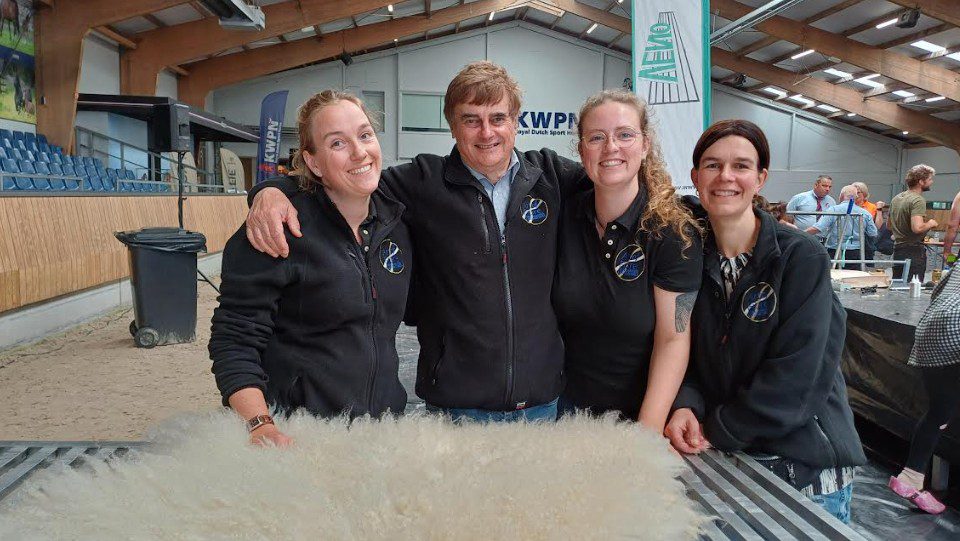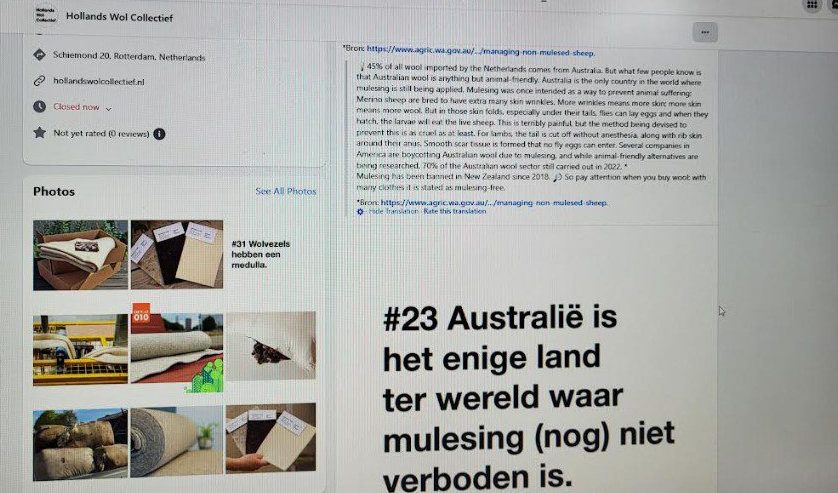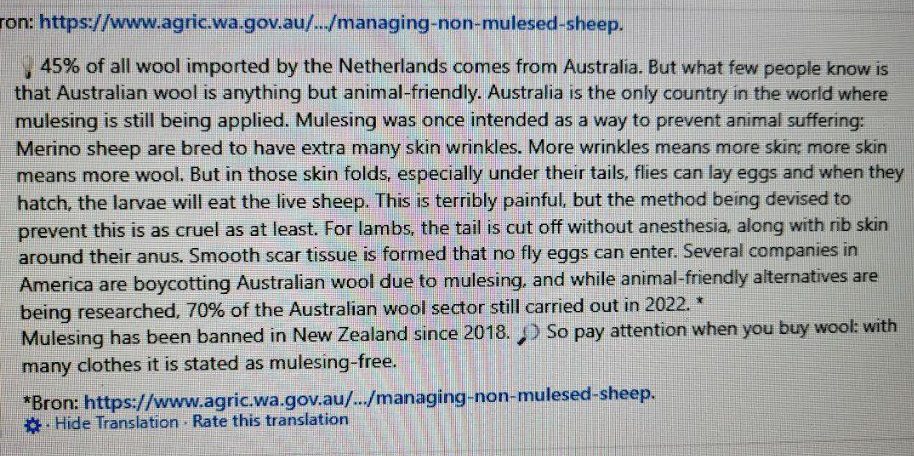
Paul Vallely, centre, with wool testing staff members, from left, Margje Stijl, Marieke Janssen and Esther Verbeek at a sheep and wool show in the Netherlands.
EMBEDDING Australia’s mulesed wool producers within the Australian Wool Sustainability Scheme would not fool the market, according to an international wool testing business owner.
However, former Australian superfine wool supply cordinator and now European wool testing business owner Paul Vallely said the market would see through this and he regarded mulesing as indefensible.
“Attempts to embed the issue of mulesing within complex accreditation/certification schemes is not fooling anyone.
“The overriding question remains – does Australia still mules sheep?” he told Sheep Central.
Mr Vallely is managing director of Art of Fibre/AAFT, a fibre testing and analysis business and in 2016 managed the ‘Future for Traditional Superfine’ project that analyzed the declining profitability of traditional superfine wool enterprises and the reduction in supply for the Australian Superfine Wool Growers Association.
He told Sheep Central that global consumers of wool products have already made up their minds that mulesing, with or without pain relief, is unacceptable.
“Buying behaviour surveys continually show this is the case.
“With this in mind, anyone with a basic understanding of marketing knows you don’t tell a consumer they are wrong,” he said.
“Particularly when you attempt to justify imagery of mulesing with imagery of a sheep with flystrike.
“The consumer will simply respond by preferencing alternatives. Any debate on the degrees to which the sheep ‘suffer’ is irrelevant – it is still unacceptable to consumers,” he said.
Market will regard ceasing mulesing as a minimum standard
Mr Vallely said for those growers expecting price premiums for ceasing mulesing, the market does not reward for meeting minimum acceptable standards.
“This is about loss of market share at a time Australian wool cannot afford to lose any more of its share.
“In other words, those who have not ceased are holding down those who have,” he said.
“The inescapable fact is that Australia needs to completely phase out the practice.
“To date, the industry has sandbagged itself into a position of not wanting to give in to animal liberation bodies,” Mr Vallely said.
“This ignores the fact that this is not about giving in to lobbyists, but about being sensitive and responsive to global demand drivers for wool.
“Furthermore, the claim that without mulesing, the risk of fly strike dramatically increases, is without foundation,” he said.
“I have seen Merino sheep bred under all circumstances that have successfully reduced propensity for flystrike over the whole body and not just the breech.”
Campaigns are highlighting Australia’s mulesing status
Mr Vallely said from his experience running wool testing businesses in Europe, other countries continue to exploit Australia’s insistence to not phase out mulesing.
“They are running campaigns informing consumers about mulesing in Australia and then proudly declaring their sheep are not mulesed.
“The fact that they are not exposed to the risk of flystrike in the first place is irrelevant to customers,” he said.
“Further, the impact of these campaigns is promoting to the market place the imagery of mulesing and linking it to Australian wool.
Mr Vallely said a category for wool from sheep mulesed with pain relief in a certification scheme is only valid if it comes under an overall strategy to phase out mulesing.
“For instance, not all growers will be able to cease mulesing without a couple of generational improvements to skin type.
“As they adapt their genetics, they will need to mules, but obviously with effective pain relief until such time as they completely cease the practice,” he said.
“I accept that in some cases, such as the pastoral regions, we might be talking of five or six years before they get to that stage.
“The acceptance of pain relief without a phase-out strategy is merely ignoring the core problem – it’s a cop-out.”
Mr Vallely said he was aware of overseas documentaries that are using Australia’s continued mulesing of sheep to promote European wool markets.
“I have found out that Dahl TV were in Australia earlier this year and did some filming.
“The program is currently in its winter break and likely to be aired early next year.”
He sent Sheep Central images of slides from a social media campaign in Holland, ‘promoting’ the fact that Australian wool is mulesed. The promo slide’s headline in Dutch says “Australia is the only country in the world where mulesing is not forbidden.’


Click here for more information about the Australian Wool Sustainability Scheme.
